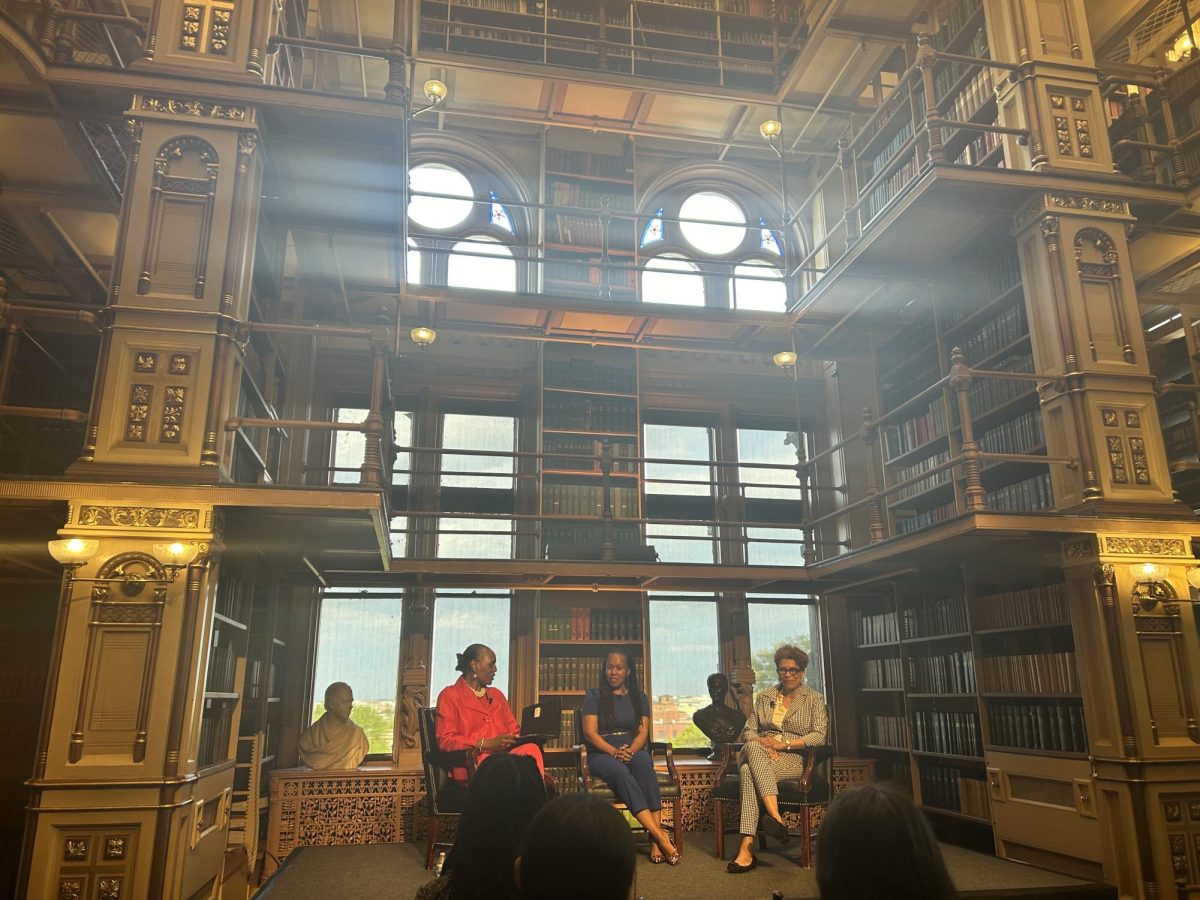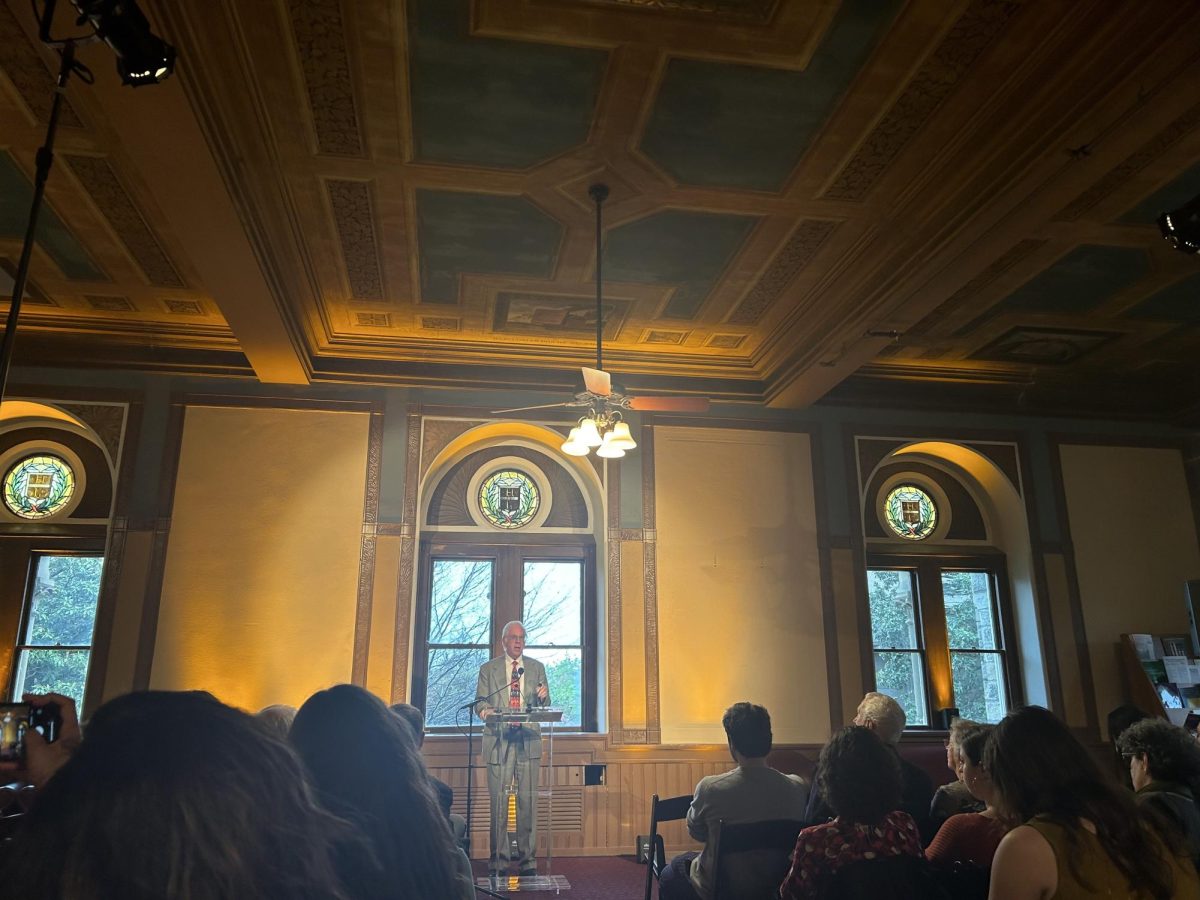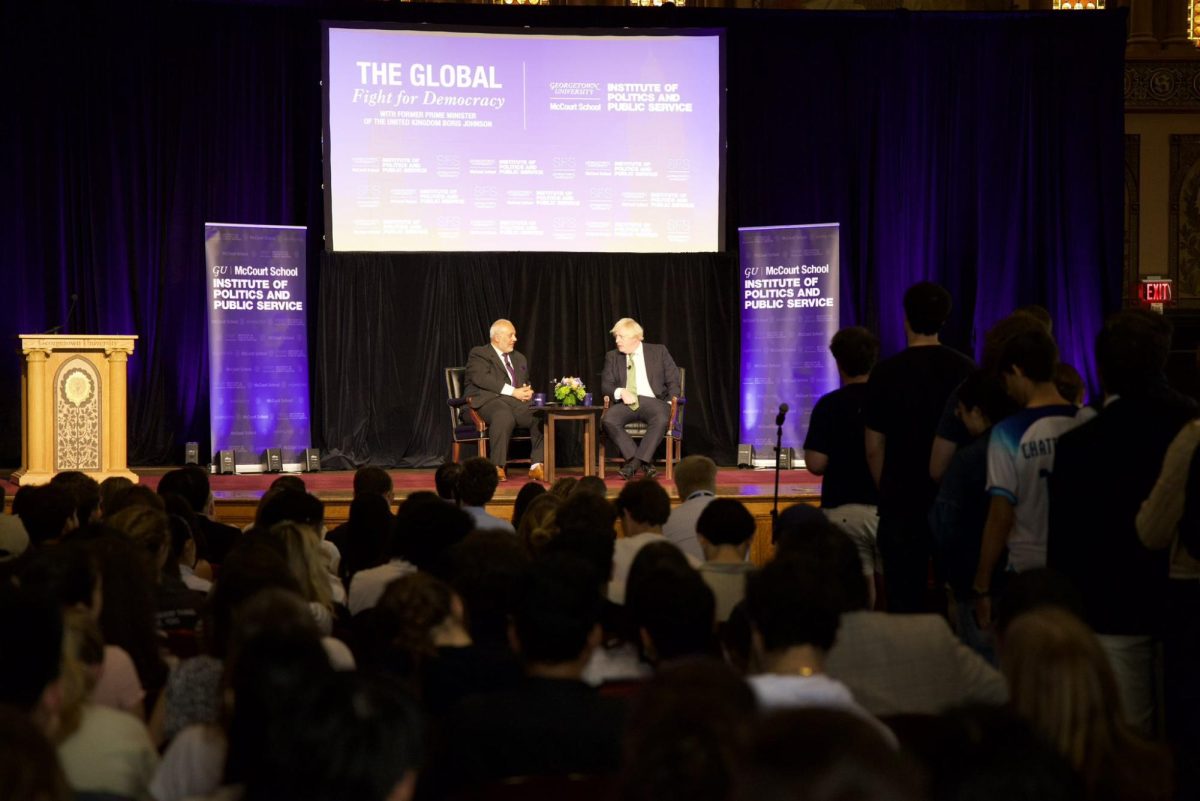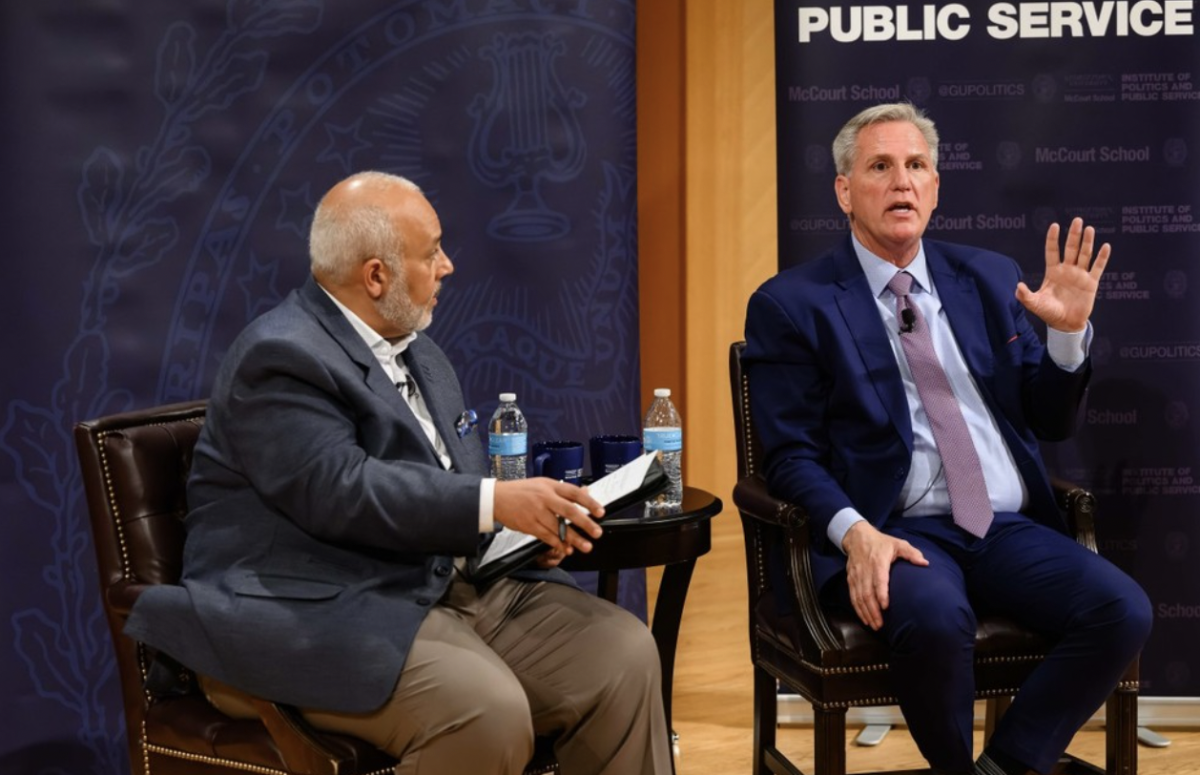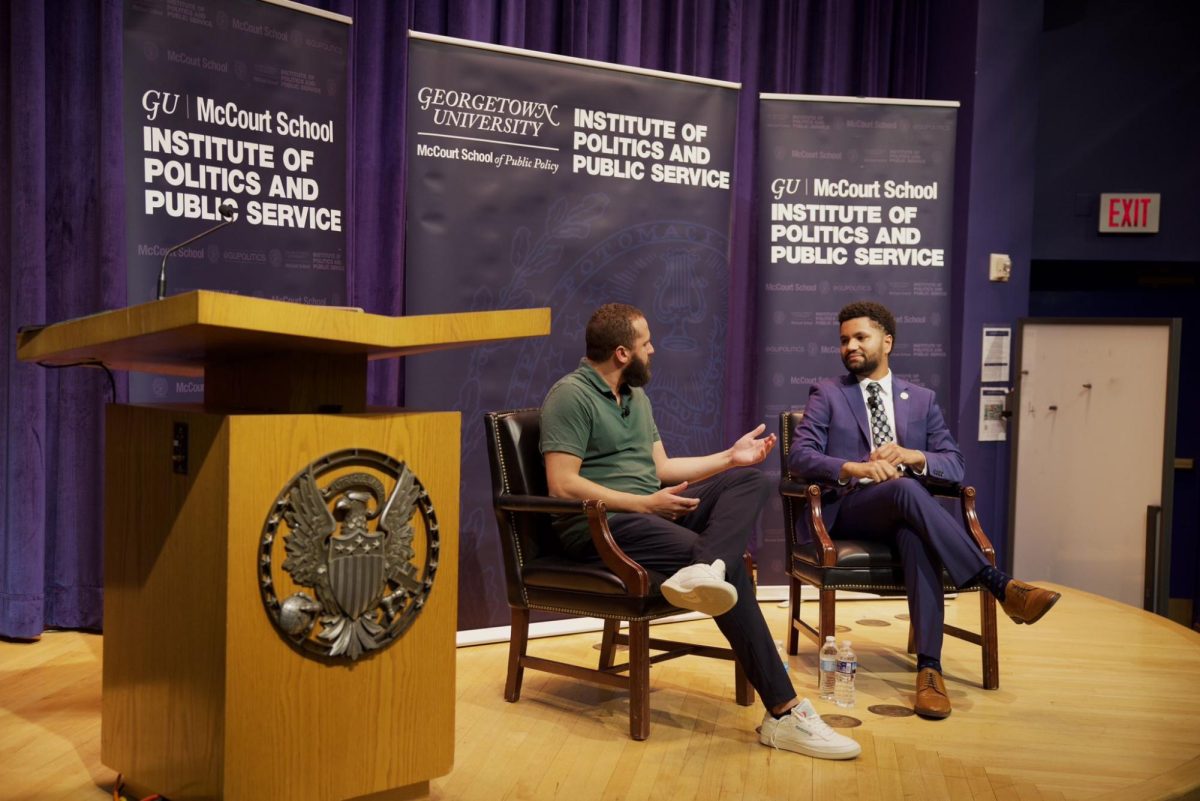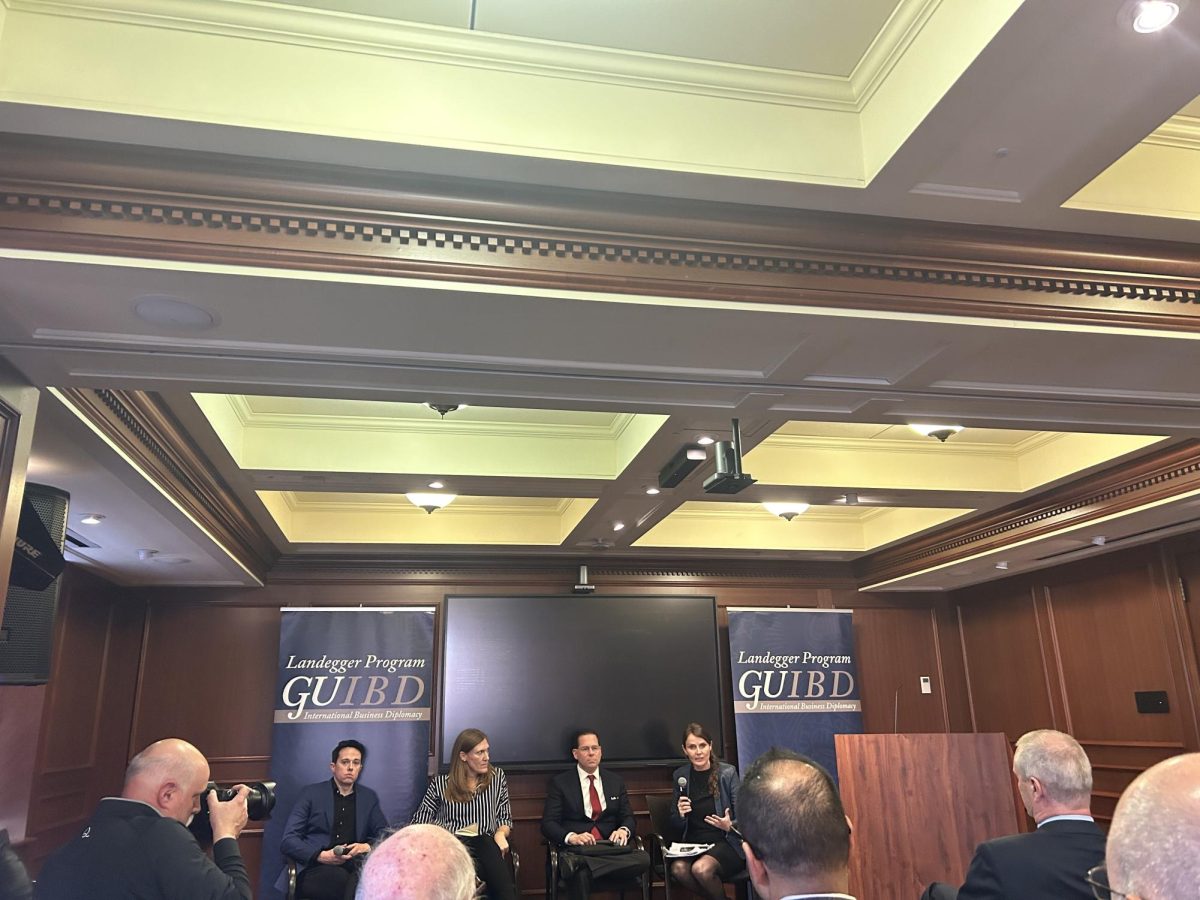Campus community members discussed the intersection of rage and gender, along with how to productively use rage in activism and daily life, in a “Rage Dialogue” event hosted by the Georgetown University Women’s Center on March 12.
The discussion, led by African American Studies Department chair LaMonda Horton-Stallings, was a part of the Women’s Center’s Women’s History Month programming. The theme for the programming this year is “Rage Renaissance: Challenging Gendered and Racialized Narratives,” which seeks to understand and discuss collective feminist rage as a tool for activism.
Annie Selak, director of the Georgetown Women’s Center, said the center is committed to an intersectional discussion of anger and gender, centering on women’s lived experiences.
“We are examining the topic of rage for Women’s History Month. We are committed to focusing on an intersectional, lived approach,” Selak wrote to The Hoya.
“This month is an exploration of rage, anger, and emotion from a variety of experiences, lenses and angles,” she added.
At the event, Horton-Stallings spoke about how the way women are taught to deal with rage early on has lasting impacts on how they express rage today, creating barriers to collective activism.
“The way that we are taught to deal with rage impacts how we will do this collective feminist raging that’s being talked about for this month,” Horton-Stallings said at the event.
“Even thinking about this idea of examining rage through an intersectional lens and ways that controlling women’s emotions and especially our collective rage might reduce us, is to think about not just that the things that we are fighting make it difficult for us to connect and collaborate, but even the ways that we are taught about rage early on create the initial things that inhibit that collective collaboration about rage.”
Ruqia AlAbduljader (GRD ’27) said she has observed varying stereotypes between men and women when it comes to rage, noting that while women are expected to hold their anger in, men are not.
“I think many of us have experienced this, where women are supposed to be soft and gentle and be polite and conduct yourself properly. And an extension of that is to not at least express your anger or hold it in quietly,” AlAbduljader said at the event. “Whereas men were the ones who claimed rage as if it’s theirs, they’re the ones who are allowed. They are the ones who are allowed to be angry.”
Anger can be a productive emotion for men and women alike when handled correctly, according to the American Psychological Association, which says that while men and women handle anger differently and any extreme approach to anger is unhealthy, anger can be productive when handled directly and with problem-solving techniques.
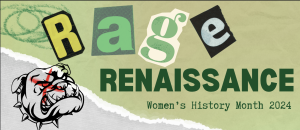
Horton-Stallings said women are often only perceived as being civil if they hold in their anger rather than expressing their rage.
“There’s a bunch of things that women have to be angry about right now, but somehow we’re also the ones who are supposed to be accountable and not curse people out, or any of these things while people are making our lives unbearable,” Horton-Stallings said. “This question of how do we hold space for both of those things but also learn that sometimes, especially collectively, if we’re collectively trying to get something done, there’s no way we’ll be seen as the civilized group that’s not going to seem like we’re raging all the time.”
AlAbduljader said that, while she understands the fear that comes with confronting people and holding them accountable, she also sees the importance and necessity of doing so.
“We shouldn’t be scared to express our real opinions. I understand the fear, 100%, but at the same time, the world is only going to get better, in general, if people with good values speak about those values,” AlAbduljader said.
“One of the things that I feel like rage can move us to do is to educate other people around us. Even though it’s not our responsibility, but it might make the world easier for us to live in and navigate,” she added.
Female rage has been depicted and studied widely in media and popular culture, whether through an NIH study, the TV series She-Hulk, or best-selling books such as “Gone Girl” by Gillian Flynn.
AlAbduljader also said she came to realize how powerful and productive anger can be, referencing poet and activist Audre Lorde, who dedicated much of her career to writing about civil rights and feminism and famously believed there should be “no hierarchy of oppressions,” as an inspiration.
“Growing up, I realized how powerful rage is as an emotion. And this, for me, also comes from Audre Lorde. And I realized that anger can actually move us and make us productive. And this is something that is very important to me now,” she said.
Horton-Stallings said her vast experiences in academia and from consuming available media have served to justify the anger she feels at times.
“There’s ways that, again, maybe if I was in a different field, I wouldn’t have the history to back up that my anger is justified, and that it might all be okay to express that,” Horton-Stallings said. “They give us comfort that we’re not being unreasonable. If we’re seeing this in other things, in other kinds of spaces, whether that’s literature, television, podcasts, music, there’s some justification to some of that.”








